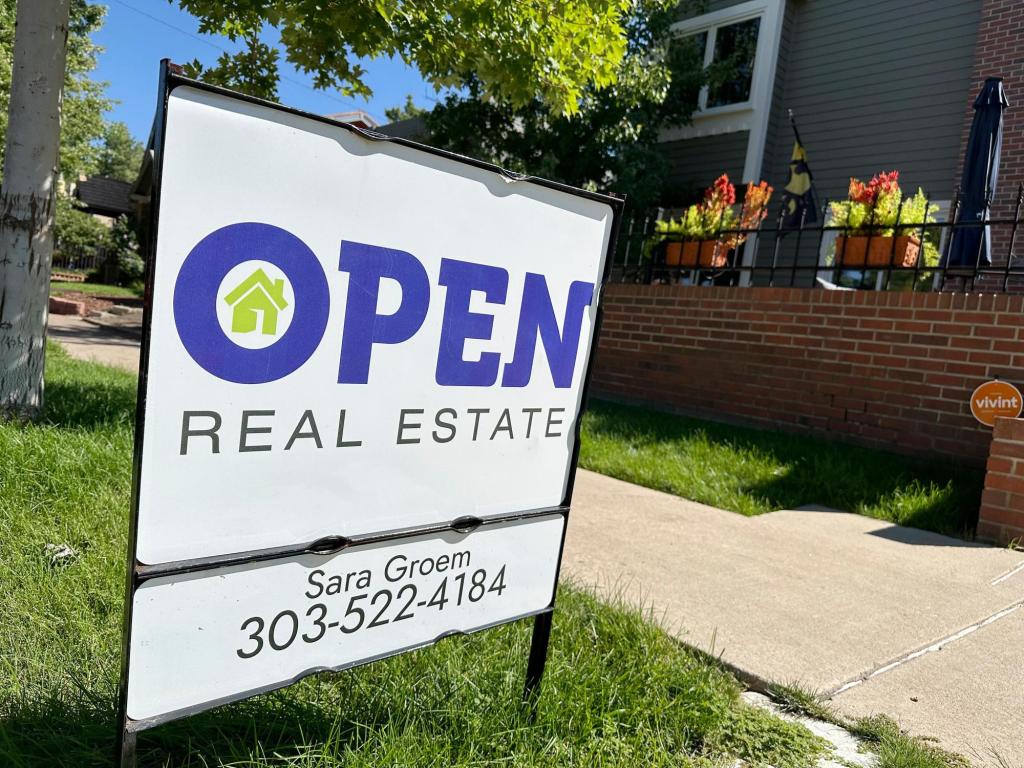Metro Denver’s housing market, like a ship caught in the doldrums, has no wind in its sails but neither does it find itself under threat.
Buyers purchased 3,636 homes and condos last month, 5.8% fewer than the 3,861 purchased in July and 5.6% fewer than the 3,850 that sold in August a year ago. Sellers pulled back more aggressively, with new listings down 12.5% month-over-month and 8.4% year-over-year.
That pushed the inventory of active listings at the end of August down 6.7% to 13,059. Despite the monthly decline, active listings remain up 21.8% from August 2024.
“As we enter the fall months, there is little expectation for the market to change as we round out the year,” said Amanda Snitker, chairwoman of the DMAR Market Trends Committee and local Realtor, in comments accompanying the report. “For Denver real estate, a stagnant market does not mean an easy one to understand.”
A weaker-than-expected jobs report on Friday should result in lower mortgage rates and improve affordability in the coming months. But more economic uncertainty could also keep some sellers and buyers on the sidelines.
“September is a notoriously volatile month for markets, and the anticipation of a Federal Reserve rate cut this month could increase uncertainty regarding the impact on mortgage rates. Factors such as unemployment, inflation and tariffs may ultimately undermine the intended benefits of any rate cut,” Snitker said.
The median price of a detached home that sold in August was $649,000, down from $650,000 in July and $651,000 a year earlier. The median price for condos and townhomes was $385,000, down from $390,000 in July and $397,125 in August 2024, according to DMAR. Listings spent a median of 30 days on the market in August, compared to 24 days in July and 21 days a year ago.
Brokerage Redfin estimates that nationally, there are 36% more sellers than buyers active in housing markets this summer, the largest gap since it began tracking that statistic in 2013. Metro Denver’s situation is more lopsided, with 61.2% more sellers active than buyers.
Buyers increasingly are gaining the upper hand, especially in states like Texas and Florida. That is showing up in more price cuts on listings and in more contract cancellations. In metro Denver, the number of pending sales getting cancelled in July rose to 17.8%, up from 16.3% a year earlier, according to Redfin.
Even with their added bargaining power, many would-be buyers can’t afford a seat at the table. But flat and even falling home prices over the past two years, combined with continued income gains, could return Denver to 2018 levels of affordability before most other metro areas, Redfin estimates.
Granted, 2018 levels didn’t scream affordability, but homeownership was more attainable than in the post-pandemic years. If 30-year mortgage rates drop to 5.5%, Denver could get back to 2018 affordability levels by October of next year. If they stay at 6.7% it could take until Nov. 2028.
Get more real estate and business news by signing up for our weekly newsletter, On the Block.



